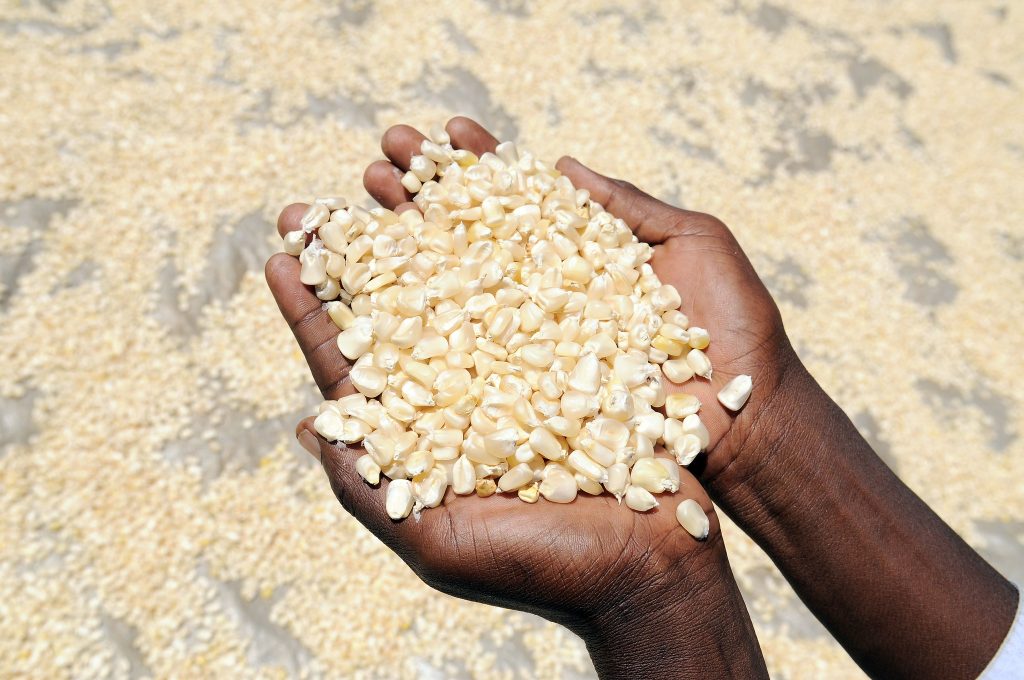Kenya’s Government Under Pressure: Lockdown Increases Hunger and Unrest
The Kenyan government reacted to the Covid-19 pandemic with lockdown and social distancing measures and is rigorously enforcing them. At the same time, these measures are aggravating the living conditions of millions of people. A hunger crisis is spreading. Social unrest and police violence are on the rise. Criminal gangs challenge the Kenyatta government from within the megacities Mombasa and Nairobi.
According to the Food and Agriculture Organization of the United Nations (FAO), around 820 million people around the world are currently suffering from chronic hunger. The FAO is particularly concerned about the impact of the Covid-19 pandemic on vulnerable communities facing hunger and other crises. In addition, according to current figures from the World Food Programme (WFP), more than a quarter of a billion people will suffer from acute hunger by the end of the year due to the effects of Covid-19. On 21 April, WFP Chief David Beasley told the UN Security Council that 300,000 people could die every day over a long period – not from a virus, but from hunger.
In Kenya, food shortages are increasing due to climatic conditions, the locust plague in the Horn of Africa and are further intensified by Covid-19. The FAO has made recommendations to the government on how to deal with the crisis. However, because the government has imposed strict curfews, many people can no longer earn money to feed themselves. With fields lying fallow and supply chains collapsing, food is becoming expensive and crime is on the rise.
Real gross domestic product (GDP) growth is expected to slow from an average of 5.7% per year (2015-2019) to 1.5% in 2020. However, if curfews last longer than expected to bring the Covid-19 pandemic under control, GDP could contract by 1.0% by the end of the year and the projected recovery to 5.2% growth in 2021 would be delayed. The prevailing downside risk is a protracted global recession that undermines Kenya’s export economy, its tourism sector and inflows of remittances, disrupts domestic economic activity and leads to fiscal slippage.
Clashes between protesters and police
Increased famine and deteriorating socio-economic conditions threaten social peace in Kenya. A lockdown has been imposed. Companies have been closed without clear measures being taken to help the affected owners, workers and their families. For people who do not have the luxury of bank savings, the lockdown and other social distancing measures pose an existential threat. This has led to civil unrest in Kenya, to which the government reacted with violence. Many people rather disregard the law than stay at home and starve.
Although the Constitution of the Republic of Kenya explicitly guarantees its citizens the right to adequate food, no aid has yet been provided. In addition, the government uses the police as a means of enforcing lockdowns. The brutality of the police, used by President Kenyatta as an instrument of intimidation, is increasing. Police brutality is particularly evident in the context of the pandemic. In the capital, Nairobi, police reportedly shot and killed a homeless man on 1 June for breaking the curfew; some 300 people demonstrated that night to express their outrage; on 25 June in the western city of Lesos, the police killed three demonstrators in clashes after denouncing the arrest of a taxi driver for disregarding pandemic restrictions.
Kenyan citizens fear that the government is using Covid-19 to monitor the opposition, restrict media freedom and use the security apparatus as a tool of intimidation and repression. The Bertelsmann Transformation Index stresses that the state of democracy and political participation has deteriorated in recent years. Stateness has also suffered: While Kenya still achieved a score of 7.0 in 2010, it fell to 6.3 in the recent BTI 2020. Although the domestic political and social order has not yet been shaken to its foundations by these unrests and riots, it is nevertheless clear that the social peace is fragile.
Anti-Covid measures don’t work in slums
This is particularly evident in the slums in Mombasa and Nairobi, which have been hit hardest by the pandemic, the preventive countermeasures and their social consequences. Kibera, an informal settlement in the heart of Nairobi, has a population density estimated at 90,000-100,000 inhabitants per square kilometer. It is almost impossible to comply with contact restrictions and social distancing. Most people are self-employed, work in the informal sector or find new jobs day after day. None of these job opportunities offer a regular income. Almost all households can be described as vulnerable and poor. The situation in the slum of Mathare is similar.
Covid-19 has made life even more agonizing for the slum dwellers of Kibera, who depend on a daily income. Most of them were forced to skip a meal or to eat less in recent weeks because they did not have enough money to buy food. During food distribution by a district office, there were reports about riots and outbreaks of violence between the inhabitants of Kibera and the police. Many people were injured and hospitalized in the incident, and two people also died. This reflects the catastrophic situation not only in Kibera but also in other slums in Kenya, as the inhabitants are in urgent need of food aid.
In the slums of Nairobi and Mombasa, the people’s discontent with the state is increasing. Criminal gangs have managed to establish local power centers and gradually expand them. These criminal gangs now possess small arms. These small groups have already been manipulated for political purposes in the past. Although the current level of mobilization outside the slums is low, due to the deterioration of the socio-economic situation and the increasing political repression in the run-up to the upcoming presidential elections in 2022, this can change quickly and be used by local politicians to endanger the social and political order and undermine the fragile stability.
To help the urban poor, the Kenyan government should give priority to meeting basic needs, including fresh water and food. There is a need to work with existing community leaders and non-governmental organizations to establish emergency planning committees to plan the appropriate response to the pandemic. Finally, the Kenyan government should mobilize resources to strengthen its social safety nets, particularly to alleviate the impact on the most vulnerable population in urban areas.


Well said
But the issue of corruption is a very big concern in kenyas growth.
At the moment, monetary donations are being stolen by the political elite.
Covidv19 donations from the JAKMA foundation are in the market for sale.
The situation is petrifying